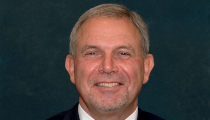UNI; Iowa High School Athletic Association Partner for Racial Equality and Gender Violence Prevention
By University of Northern Iowa on December 14, 2020 state news PrintThe University of Northern Iowa Center for Violence Prevention (CVP) and the Iowa High School Athletic Association (IHSAA) have partnered together to provide and support racial justice and gender-based violence prevention programming to Iowa school districts and athletic departments.
New programming created by the CVP and the IHSAA includes a 20-minute, introductory video on today’s leadership necessary to challenge and confront racism and sexism in schools and communities, along with a training guide and three discussion-based activities for coaches to engage their student athletes. UNI’s athletic director, David Harris, is a featured speaker and contributor on the video. Program materials can be found on the IHSAA website (iahsaa.org/about/student-services/) and on the CVP website (cvp.uni.edu/).
“The CVP is at the forefront of the gender violence prevention discussion in Iowa,” said Chad Elsberry, IHSAA assistant director. “As an organization, we also see a need to help provide programming and activities to engage our coaches, athletic directors and athletic departments in promoting racial justice and equality.”
The CVP and IHSAA will host the online seminar, “The Race to Gender and Racial Equality,” from 1-3 p.m. on Friday, Jan. 22, bringing together panelists from athletics, education, victim services and mental health in a round-table format. More information about the online seminar will be forthcoming in early January 2021.
“Sport has always been at the forefront of challenging social norms that support discrimination, violence and sexism,” said Alan Heisterkamp, director of the CVP. “The best way to prevent incidents of racial and gender violence is to talk about them before they occur, discuss reasons why they’re wrong and unacceptable and then work explicitly to stop these behaviors in its tracks. This requires leadership and accountability among youth and adults alike.”







